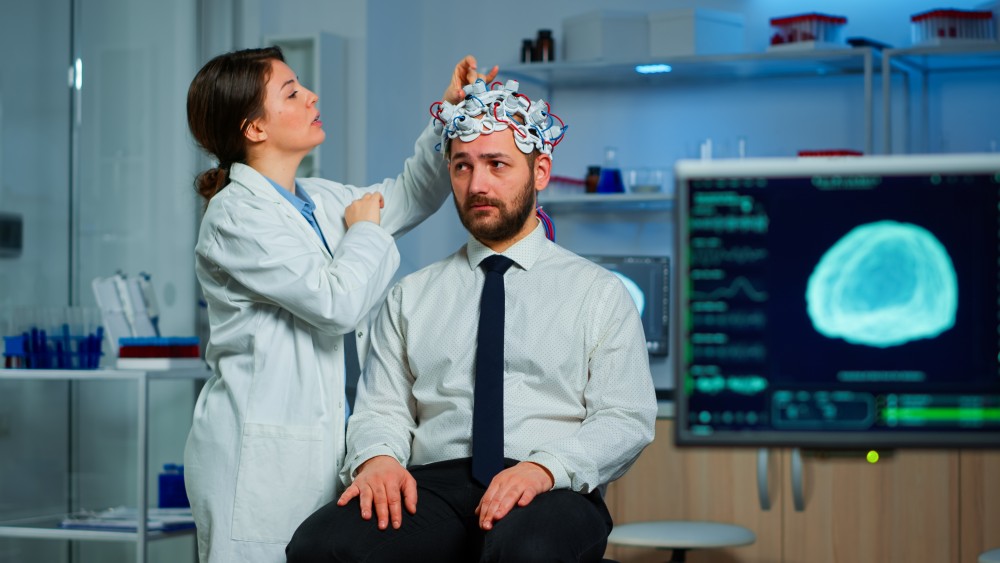Skull base neurosurgery is one of the most intricate and challenging subspecialties in medicine. This field requires a unique combination of anatomical knowledge, technical precision, and innovative thinking to treat conditions that affect the delicate area where the brain meets the skull. A skilled neurosurgeon in this domain is not only a specialist in removing tumors but also an expert in correcting debilitating functional disorders. This duality highlights the truly diverse and vital role of a skull base neurosurgeon.

The Challenge of Complex Tumors
The skull base is a crowded and complex region, home to critical arteries, veins, and the many nerves that control our senses and movements. Tumors that form here, such as meningiomas, schwannomas, chordomas, and pituitary adenomas, are particularly difficult to treat due to their close proximity to these vital structures.
Traditional approaches often required extensive, open surgery, but advancements in technology and surgical techniques have made minimally invasive skull base surgery a reality. Using endoscopes and specialized instruments, neurosurgeons can now access and remove tumors through natural openings like the nose or small incisions, reducing recovery time and minimizing risk to the patient. The goal is always to achieve the complete removal of the tumor while preserving the surrounding healthy tissue.
The Delicate Balance of Cranial Nerve Disorders
While tumor resection is a cornerstone of skull base neurosurgery, the field also extends to the treatment of a different category of diseases: cranial nerve disorders. These are not caused by tumors but by the compression or irritation of one of the 12 cranial nerves, which can lead to severe and life-altering symptoms.
One of the most common examples is trigeminal neuralgia, often called the “suicide disease” due to the excruciating, shock-like pain it causes in the face. This condition is frequently caused by a blood vessel pressing on the trigeminal nerve. Similarly, hemifacial spasm is caused by vascular compression of the facial nerve, leading to involuntary twitching of one side of the face.
For these conditions, a skull base neurosurgeon may perform a procedure called Microvascular Decompression (MVD). During this delicate surgery, the surgeon gently separates the compressing blood vessel from the nerve and places a tiny Teflon cushion between them. This relieves the pressure, often providing immediate and permanent relief from symptoms. This procedure is a testament to the fact that skull base surgery isn’t just about removing growths; it’s about restoring normal function and improving quality of life.
Conclusion
The world of skull base neurosurgery is a microcosm of the entire neurosurgical field, demanding mastery of both oncological and functional procedures. From meticulously planning the removal of a tumor intertwined with critical nerves to performing a precise decompression that frees a patient from chronic pain, the specialist in this area navigates a vast and challenging landscape. It is a field defined by precision, innovation, and a profound commitment to improving the lives of patients suffering from some of the most complex conditions imaginable.
Frequently Asked Questions
1. What is skull base surgery?
Skull base surgery is a highly specialized area of neurosurgery that focuses on treating conditions located at the base of the skull, an area that separates the brain from the rest of the head.
2. What conditions does a skull base neurosurgeon treat?
A skull base neurosurgeon treats a wide range of conditions, including benign and malignant tumors (meningiomas, pituitary tumors), and functional disorders like trigeminal neuralgia and hemifacial spasm.
3. Is skull base surgery always invasive?
No, a significant advancement in the field is the development of minimally invasive surgical techniques that allow for access to the skull base through smaller incisions or natural orifices, leading to less pain and faster recovery.
4. How long is the recovery from skull base surgery?
Recovery time varies greatly depending on the condition treated, the complexity of the surgery, and the patient’s overall health. Your surgeon will provide a detailed and personalized recovery plan.
5. How do I find a qualified skull base neurosurgeon?
Finding a qualified specialist is crucial. Look for a board-certified neurosurgeon with fellowship training in skull base surgery and extensive experience in treating your specific condition.
Ready to take the next step towards a solution for your complex condition? Learn more about our specialized approach to skull base neurosurgery by visiting our website https://sccplano.com/locations/west-plano/ . You can also contact our team directly to schedule a consultation and discuss your treatment options. We are here to provide the expert care and guidance you need.
